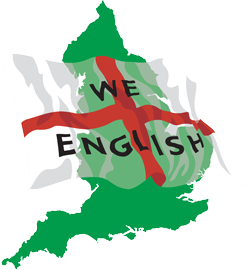ABOUT WE ENGLISH
April 1st, 2008 adminWe English aims to be a rich, extensive and nuanced corpus of images that help create a new dialogue in the photographic analysis of contemporary English society and the challenging notion of Englishness, and which extends a rich history of British photographers documenting their homeland.
After spending two years producing a book about Russia and Russian identity (Motherland published by Chris Boot Ltd), I began in turn to think about my own homeland and about the concept of Englishness and all its complexities.
We English will be a sustained photographic documentation of England in 2008. My aim is to create a photographic journal of life, specifically documenting landscapes where groups of people congregate for a common purpose and shared experience. It will be about what people do in their spare time, their leisure pursuits and pastimes and how people derive meaning and identity from these activities. It will also be about people’s relationship with their environment, whether their immediate surroundings are urban or rural. Recreation will provide the basis for a wider exploration of people’s attachment to place and the way in which the inhabitants of England derive meaning and identity from everyday events and activities. The project will focus on events that take place on a local level and at locations where everyday rituals are played out. (While traditional communities have weakened, our attachment to locality remains strong and provides an important expression of identity.) [1]
Logistically, We English will take the form of a series of journeys around England in a motorhome (the main journey being from April until September when I will be joined by my wife and daughter). The journeys will be based on my own research together with ideas sourced via this website where I’m encouraging you, the general public to post details about events and share information about your ideas on the notion of Englishness and how it relates to you. This collaboration will be important in dealing with the complex issues surrounding notions of cultural representation and will also enable me to access a broader spectrum of themes and geographical locations. Moreover, We English will be a pilgrimage of sorts, where I will seek out those places that I believe have helped shaped my own feelings of Englishness.
The project will extend, and reflect upon, a history of documentary photographic projects and the variety of approaches that British photographers have utilised to capture the lives of diverse communities across the country and explore issues surrounding national identity and the constantly shifting notion of Englishness. [2] The long and rich tradition of British photographers documenting their homeland, some of which could be seen in the recent exhibition at Tate Britain ‘How We Are – Photographing Britain,’ has seen work produced by the likes of Humphrey Spender, Bill Brandt, Tony Ray Jones, Ingrid Pollard, Martin Parr, John Davies and Jem Southam to name a few. However, the past decade has seen relatively little work produced by British photographers. [3]
We English will draw on aspects of human geography and on cultural geography, particularly. [4] Since landscape has long been used as a commodity, an aesthetic amenity that is there to be consumed, it makes sense to use leisure activities, no matter how banal they might appear, as a way into an exploration of England’s shifting cultural and aesthetic identity. Whilst I hope to produce images that are nuanced and beautiful, even elegiac, they will nonetheless explore that ways in which landscape can also become a place of conflict, a place where received ideas about nationhood and quintessential Englishness are challenged.
I am interested in the reality of an England at this time of rapid social and cultural flux but am not seeking to overturn stereotyped images of traditional English scenes. (This has already been admirably achieved by John Kippin, Ingrid Pollard and others.)Â We English will yield contemporary visions of my country that recognise the narrowness of long-held mental images of England and explore the ambiguities and complexities of our place within the world around us in a manner that amplifies and extends meaning.
Footnotes-
[1] Recent research by the Economic & Social Research Council shows that the community that really matters to people is very geographically local. Source: ESRC- ‘Britain in 2008’. Statistics show that two-thirds of people live within five miles of where they were born; local radio attracts 25 million listeners a week in contrast to an average of 13 million to Radio 2; and while 60-70% of us read a national newspaper daily, 80-84% will read a local newspaper. Source: Julian Baggini, ‘Welcome to Everytown’.
[2] I’m interested in the concept of Englishness, as opposed to Britishness, which has become increasingly complex since devolution. A recent study by the ESRC also found that many English respondents wanted to ‘shrink’ their British identity to a more localized English one like those of the Scots, Welsh and Irish. Furthermore, geographically England dominates the UK, accounting for nearly 85% of its population.
[3]Â Examples of more recent studies would be the work of The Caravan Gallery by Jan Williams & Chris Teasdale and The Folk Archive by Jeremy Deller & Alan Kane.
[4] The work will explore the connection between the imaginative geography of landscape and the ‘imagined community’ (Benedict Anderson, 1983), where Anderson argues that England as a nation is not directly experienced by its inhabitants in the same, unifying manner but rather that the concept is tied together by a range of images held in the minds of its fellow-members.

